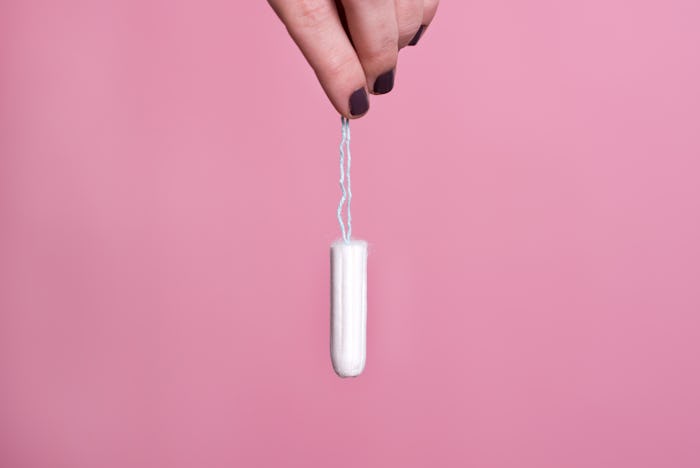Life

The Reason You Can't Use Tampons After A C-Section
My girlfriends were very vivid with their descriptions of post-birth bleeding. With no detail left unturned, they spelled everything out for me while I was carrying my bundle-to-be in my belly. I felt prepared for the experience by loading up on pads well before my due date. Fast forward to my delivery and I end up with a C-section — all the advice came from women who delivered vaginally. I had the exciting thought, "can you use tampons after a C-section?" because that would feel a lot more familiar and comfortable to me than having a puffy surf board between my legs.
Any thrill of using tampons died quickly when my doctor informed me that this was a big no-no in recovery from childbirth, no matter how the delivery shook down. As the website for the American Pregnancy Association explained, part of C-section recovery is heavy bleeding that should only be managed with extra-absorbent menstrual pads and nothing else. This heavy bleeding, called lochia, lasts up to 10 days and tapers off over the six weeks after your child is born, according to What To Expect's website. Even though you didn't deliver vaginally, your body still has to release the extra blood it accumulated during pregnancy.
But why does the pad win out over the tampon in this particular case? As Baby Center explained, "As long as the flow of lochia continues, you have an open internal wound at the site where the placenta was attached to the uterine wall." And like any wound, this one is vulnerable to infection, which can be introduced by using a tampon.
According to Healthline, six weeks postpartum is the healing time needed for a C-section, although each woman is different and that timeline varies from person to person. After you hit the six week mark, you can talk to your doctor or midwife about making the switch to tampons (especially for your first postpartum period).
To stay healthy and safe, it's best to stay away from tampons right after your C-section and let pads do the heavy lifting for a while. It might be uncomfortable and not what you're used to, but keep in mind that not only is it the best thing for your body, it's also only temporary.